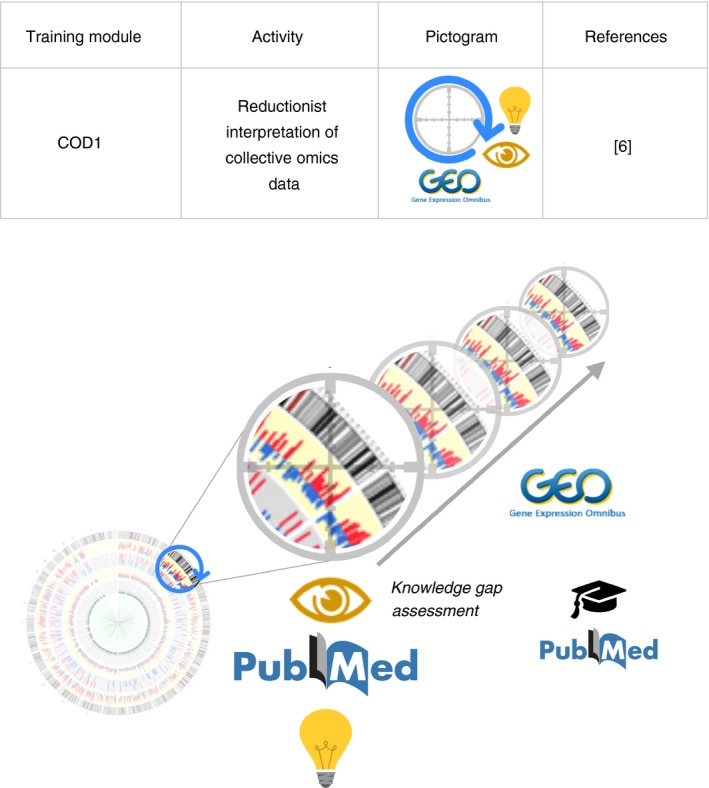Figure 1.

‘Collective Omics Data’ training module 1 (COD1). This activity focuses on the development of skills and demonstrable experience in the conduct of reductionist biomedical research approaches. Trainees prioritize and select molecules based on potential for addressing gaps in biomedical knowledge and potential for impact (e.g. extent of clinical or conceptual advances that filling the knowledge gap in question may provide). This assessment is made by examining differences in transcript abundance between experimental groups or study groups among datasets available in the GEO repository. The current state of biomedical knowledge, as is reported in the peer‐reviewed biomedical literature, is also taken into account. Expression profiles of the molecule that has been selected for further investigation can be examined in additional GEO datasets for independent validation of the initial finding or hypothesis development and testing. A graphical element used in this figure was adapted from Akula et al.16 Licensed obtained from Springer Nature on May 16, 2018. License number 4350660730175.
